IAMSS-IOS one-day national seminar on “Issues and Challenges before Minorities in India”
Document
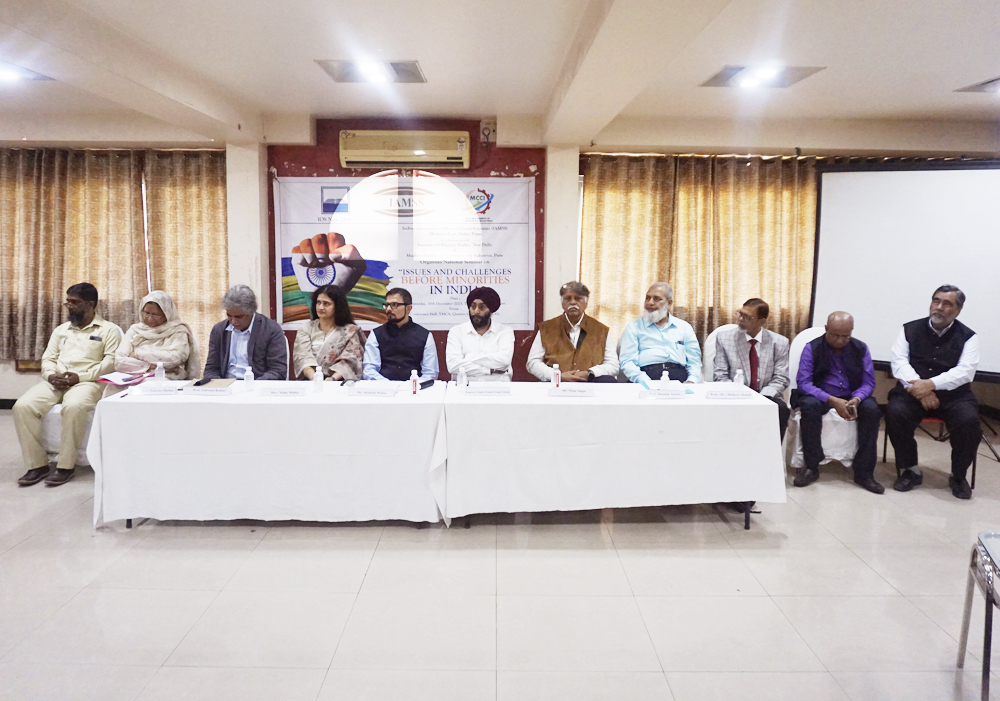
IAMSS-IOS one-day national seminar on “Issues and Challenges before Minorities in India”
Pune: A one-day national seminar on “Issues and Challenges before Minorities in India” was jointly organised by the Indian Association for Muslim Social Scientists (IAMSS), Western Zone, Institute of Objective Studies, New Delhi, and Muslim Chamber of Commerce and Industries (MCCI) Pune, on December 30, 2023 at the YMCA Conference Hall, Pune.
Inaugural Session
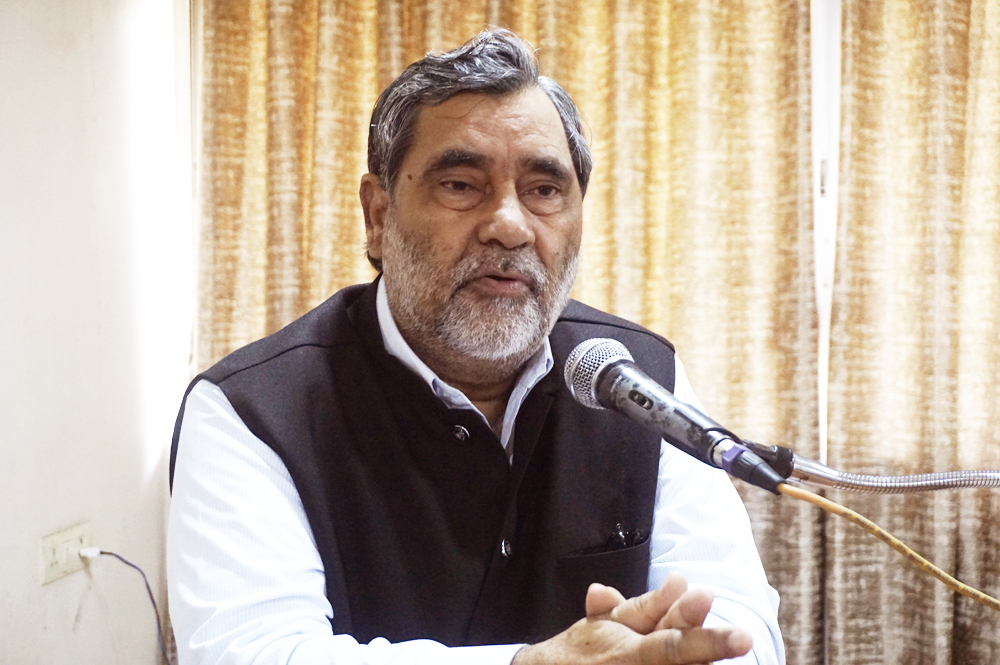
The convener of the seminar, Prof. Moinuddin Khan, in his opening remarks, briefly threw light on the purpose of holding the seminar and the challenges before the minorities, especially the Muslims. In his welcome address, organising secretary of the seminar and the president of the IAMSS (Western Zone), Prof. Shakeel Ahmad said that the Muslim community was still lacking in education and its economic plight had not improved yet. He also expressed his sincere thanks and gratitude to Dr. M. Manzoor Alam, Chairman of IOS, for giving his approval to start IAMSS, Western Zone at Pune. Therefore, it became possible to organize the above seminar at Pune. The assistant secretary general of the IOS, Prof. Haseena Hashia remarked that the IOS was seized of the problems faced by the community. Keeping this in view, the Institute was consistently studying the contours of the problem by undertaking research and holding seminars and symposia. She said that the IOS had churned out important data on the economic backwardness of Muslims.
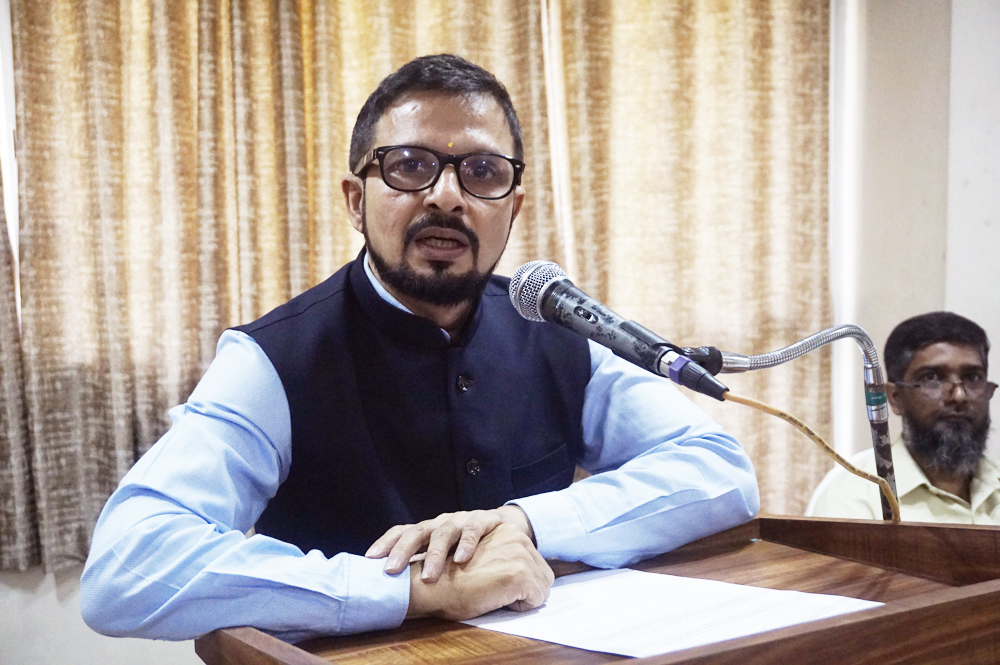
The Secretary of Dnyanoday Prashikshan Sevabhavi Sanstha (DPSS), Mr.Shailesh G. Mehta, emphasised that India was home to many religious groups. Noticeable gaps between many religious groups and minorities in education, employment and economic opportunities existed. He further said that security and safety were the rights of everyone. Diversity must be promoted to showcase India’s plural society. Inclusivity was the necessity and the right of every citizen. He called for celebrating this diversity.
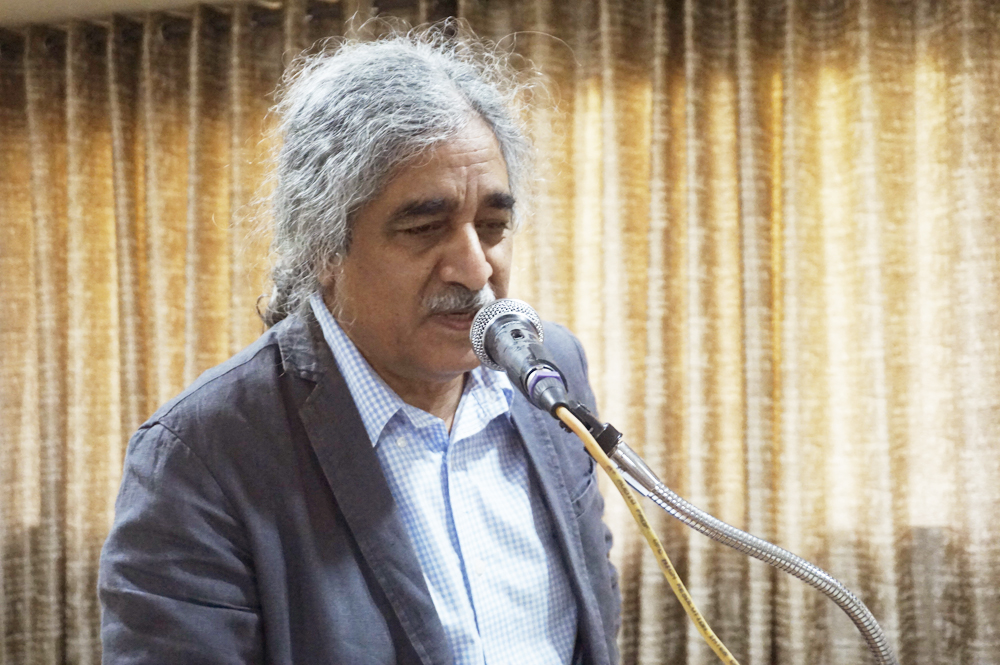
Well-known political scientist, writer, researcher, thinker from the School of Development Studies, Tata Institute of Social Sciences (TISS), Prof. Ashwani Kumar, delivered the key-note address. He gave many thought-provoking ideas about syncretic India. He said that India was made of migrants from time to time from Egypt, Greece, Arabia, Mediterranean and many other places from all over the world. Every fifth person in India was a minority. Muslims were the biggest minority. Thus India was a land of minorities. National movement for freedom by Mahatma Gandhi and Jawaharlal Nehru realized this diversity. India was like a salad bowl in which every group remained intact and unique. India had a syncretic culture. He maintained that the idea of India being a nation of minorities, saved India.
Prof. Ashwani Kumar observed that India was a nation of nations. Only 4 percent of India faced violence. Ninety-six percent was peaceful. Ethnic identities, regional identities and religious identities were used by politicians to bring strife. A study of our history and civilization revealed that we never had polarization. According to Asutosh Varshney, India had ethnic violence, but there was dialogue. He said that the Constitution gave rights to minorities. Baba Saheb Ambedkar laid emphasis on civil identity. In the eye of the Constitution everybody was equal. Article 29 and 30 gave protection to all linguistic and cultural minorities. Dr. Ambedkar purposely kept the meaning of the minority ambiguous. This enabled India to remain together.
Prof. Kumar noted that the minorities in the present time were facing many challenges. Sachar Committee spoke about the exclusion of minorities. Muslim participation in public employment was poor. In view of this, more inclusive policies for them were necessary. Muslim youth was desperate for employment. He said that a nation could not be built with a large number of unemployed youth. Muslim community was churning and within the community, more democratization was taking place. “All of us are minorities in our own way and in our own religion”, he said
Prof. Ashwani Kumar held that Indian culture was the culture of melting pot. Nehru had dreamed of unity in diversity. Amrita Pritam often invoked Waris Shah. Today too, India needed Waris Shah. Ambedkar never standardized belief systems. Gandhi was fascinated by Urdu. This language had words from Persian, Hindi and written in Arabic script. Urdu was a fine example of India and was Indian. India was both geographical and spiritual. It continued to flow like a river uninterrupted. India was largely self-regulated and integrated. India remained an oasis of peace and largely autonomous, he added.
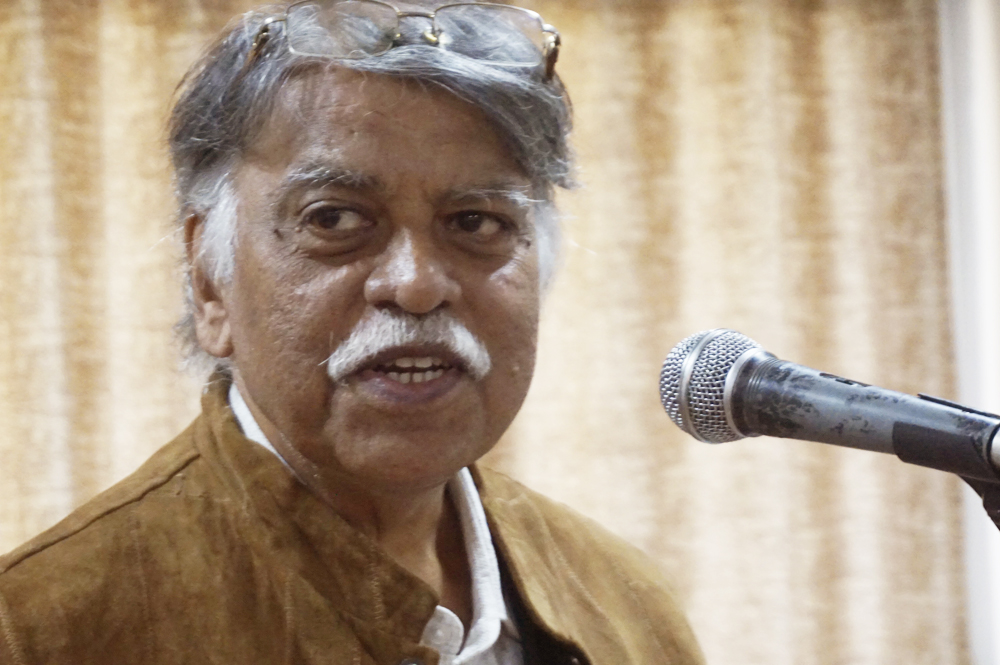
President of the Muslim Chamber of Commerce and Industries, Nisar Sagar introduced the MCCI and stressed the need for coming out of groupism, getting united and disseminating the message of love and peace.
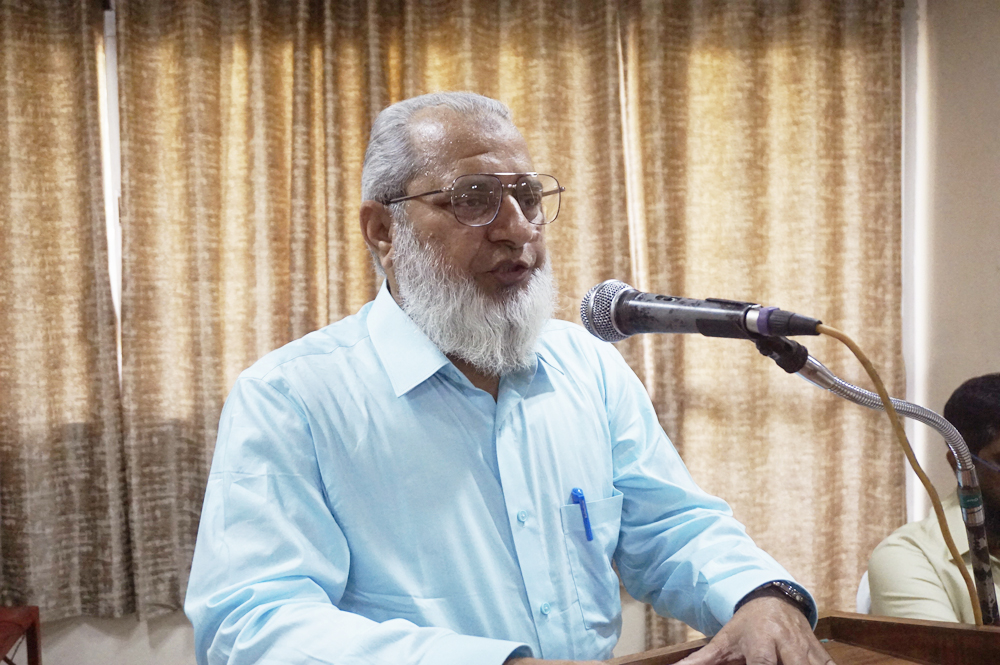
In his presidential remarks, secretary of the Indian Association of Muslim Social Scientists (IAMSS), Prof. Shamim A. Ansari highlighted the aims and objectives of the AIMSS and suggested that such programs should be held at Pune on regular basis. He appreciated the efforts of office-bearers of IAMSS Western Zone, for organizing this program. He said that association had been focusing on social issues, particularly relating to Muslims. Dr. Aftab Alam, seminar coordinator and joint secretary of IAMSS, Western Zone, proposed vote of thanks in the inaugural session.
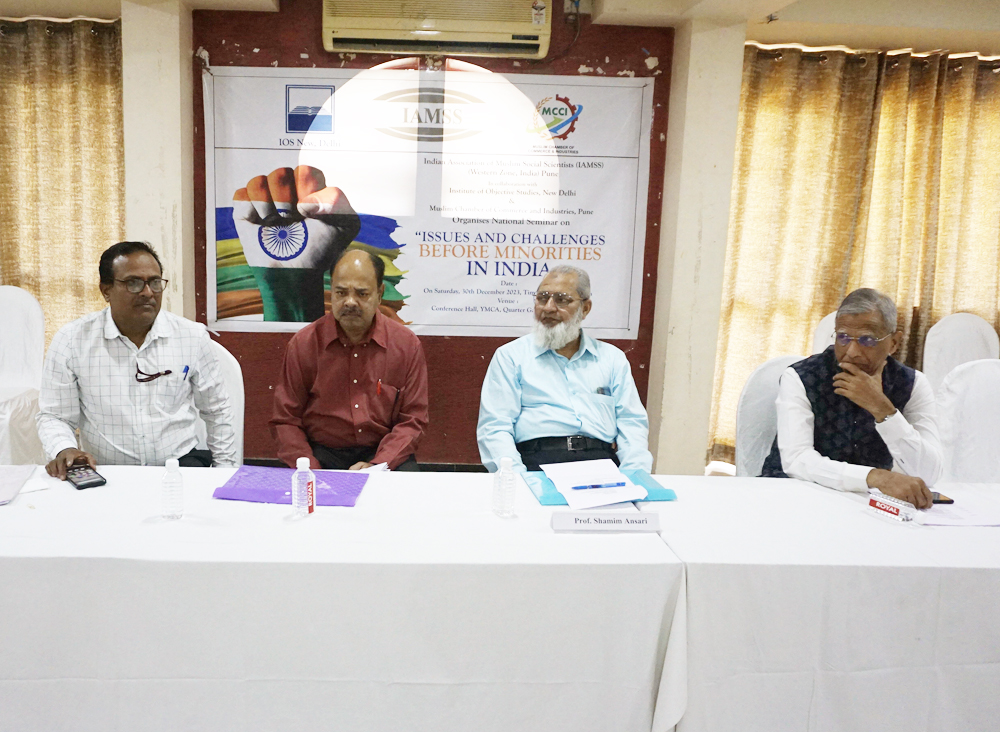
Technical Session-I
The first technical session was chaired by Prof. Shamim A. Ansari, secretary, IAMSS. Prof. Khaja Moin Shakir of Dr. Babasaheb Ambedkar Marathwada University, Aurangabad spoke on political representation of minorities in state assemblies and Parliament. He commented that when Muslims were 14 percent, the BJP vote percentage declined. On the contrary, in the Muslim majority areas, vote percentage of the BJP increased. This was ironical. Social scientists should analysis of the election data and put suggestions in order to make Muslim voting effective, he said. Prof. M. G. Mulla, dean, faculty of Commerce, Abeda Inamdar Senior College, Pune, identified the indicators of inequality between Muslims and other religious groups. He held that education could reduce these inequalities. India was made in class rooms. However, the New Education Policy (NEP) did not promote education. He opined that more Muslim students were dropping out when the NEP was being implemented.
Sohail Ansari, director, MCCI, focused on the role of the MCCI in the development of Muslims in India. He said that the economic condition was dismal. For example, Muslim literacy rate was below the national literary rate. Twenty-five percent of the beggars on the streets were Muslims. He did SWOT analysis for Muslims and emphasized that education and economic uplift were extremely necessary for Muslims. He said that the MCCI could play a vital role in this connection.
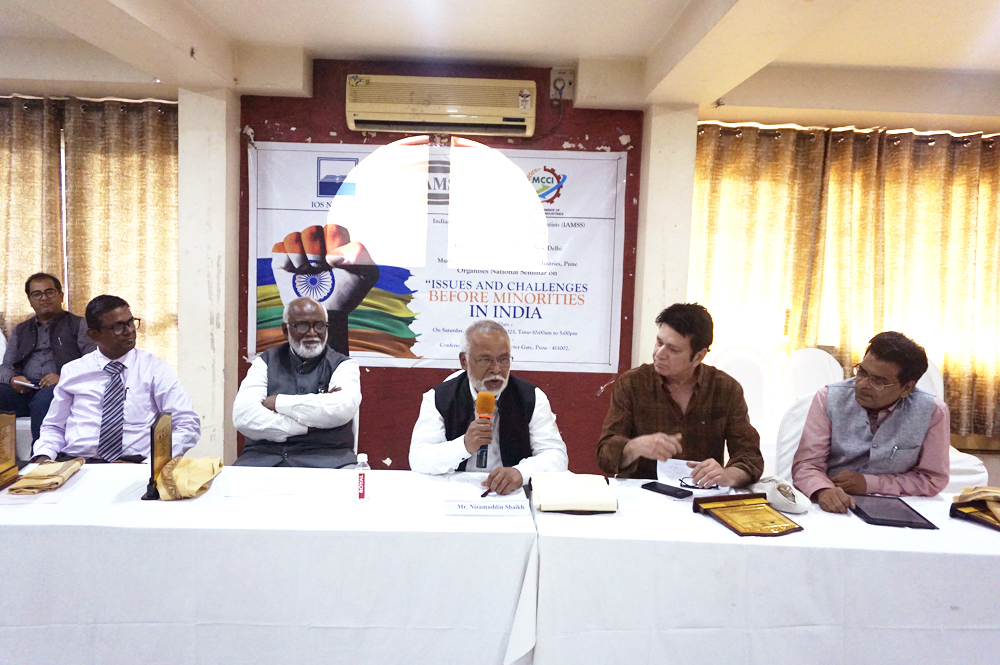
Technical Session-II
The second technical session was chaired by Nizamuddin Shaikh, Sholapur, who is a member of general assembly of the IOS. In this session, presentations were made on media and under-representation of minorities, especially Muslims in India. Mr. Shikalgar, founder president of Maharashra minorities pointed out that Muslim issues were ignored. What was needed was to train good journalists like Ravish Kumar and Nikhil Wagle in the Muslim community. Dr. Subhash D’Souza, vice-principal of Virar College, eloquently explained how media presented a very bad and incorrect image of Muslims and Christians in India. Suhail Faqih, general secretary of G.M. Momin Women’s College, Bhiwandi, Kalyan, analysed the present situation on the representation of Muslims in Indian media and provided some suggestions to rectify this. Dr. Khalil Ahmed, principal, AEK College of Commerce and Management, Mumbai, also made some suggestions to correct the present status of Muslim representation in Indian media. He also suggested that some reforms should be made to correct distortions in the media coverage of Muslims.
Technical Session-III
Prof. Khaja Moin Shakir of Dr. Babasaheb Ambedkar Marathwada University, Aurangabad, chaired the third and last technical session. In this session, Prof. Anjum Ara of Rizvi College, Mumbai, presented an exhaustive statistical data on jobless growth in India and its impact on minorities. Dr. Nasir Sheikh, principal of Foresight College, Pune, focused on the role of social sciences and the importance of values in human development. Dr. Malika B. Mistry spoke on educational status of minority women in India. She made several recommendations to improve the dismal state of Muslims in general and Muslim women in particular.
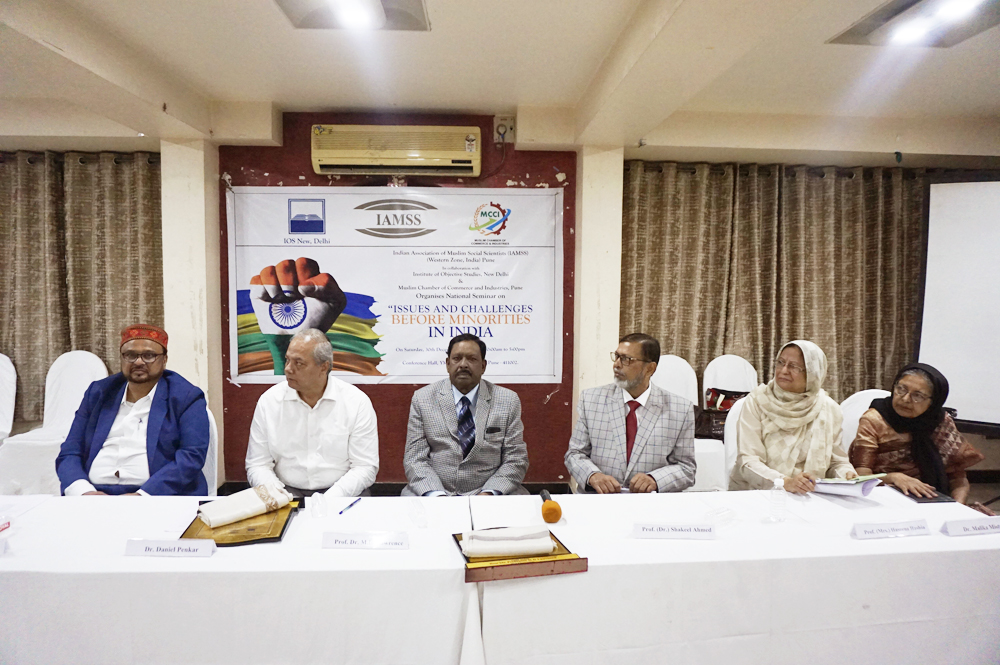
Valedictory Session
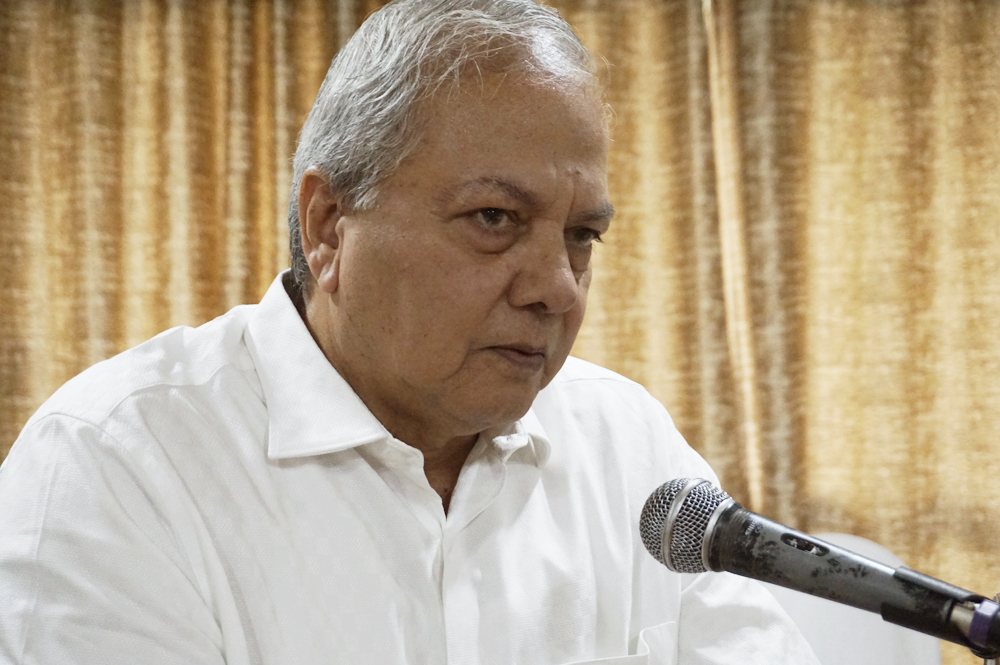
In the valedictory session, Dr. Daniel Penkar, director, SIOM, Pune observed that drastic steps were required for the uplift of Muslims in India. But one did not speak on these issues. He called for giving best education to girls. Every country required quality population. When one had quality, even his worst enemies would attract to the community. For instance, when Shami, a national cricket player, excelled in the World Cup, Yogi Aditya Nath named one gym after him. He suggested that some experts should do research on government’s welfare schemes and disseminate in the community so that the community forged ahead on the path of development. He said that small things mattered a lot. He asked for using the talent of the youth for the good of society and the nation. Community’s strength and education would keep it intact. Every problem had a solution and no Hindutva conspiracy would ever affect the community, he added.
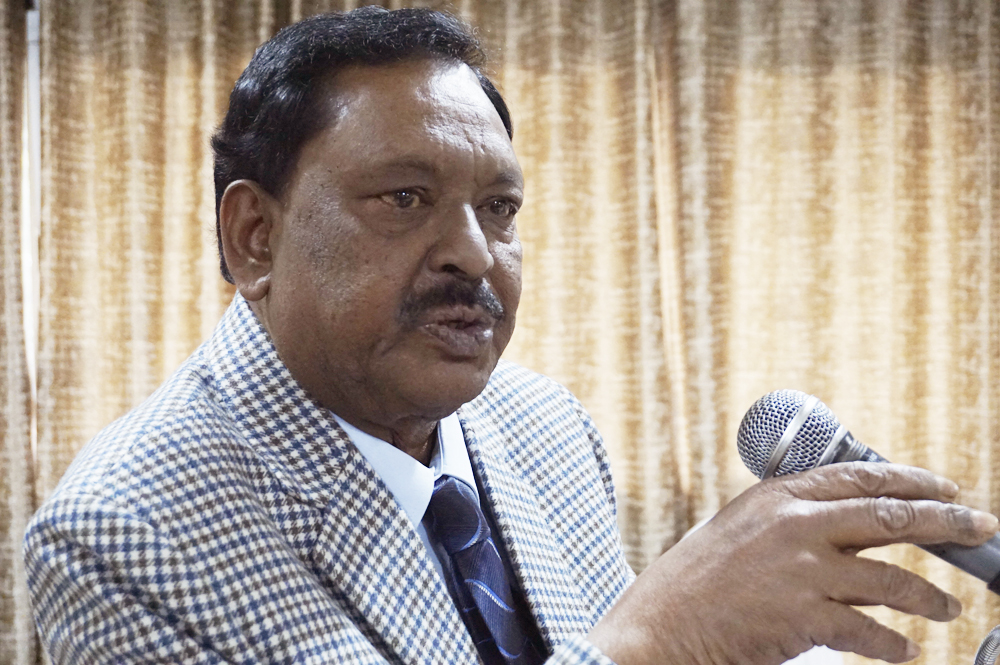
In his valedictory address, Vice-chancellor of PA Inamdar University, Pune, M. D. Lawrence stressed that the minorities should sustain with honour. They must leave hypocrisy and get united. He said that within minority itself there was majority. They should use CSGD strategy for their sustainability. He maintained that while ‘C’ stood for continuity, ‘S’ stood for solidarity ‘G’ for growth and ‘D’ for development. Minorities should have regular, healthy and continuous flow of relationship with all. Solidary should be for all and with all bereft of ego, jealousy lust and greed. They should continuously develop. Further right, information about minorities should be disseminated. Focus on this strategy would guarantee success, he concluded.
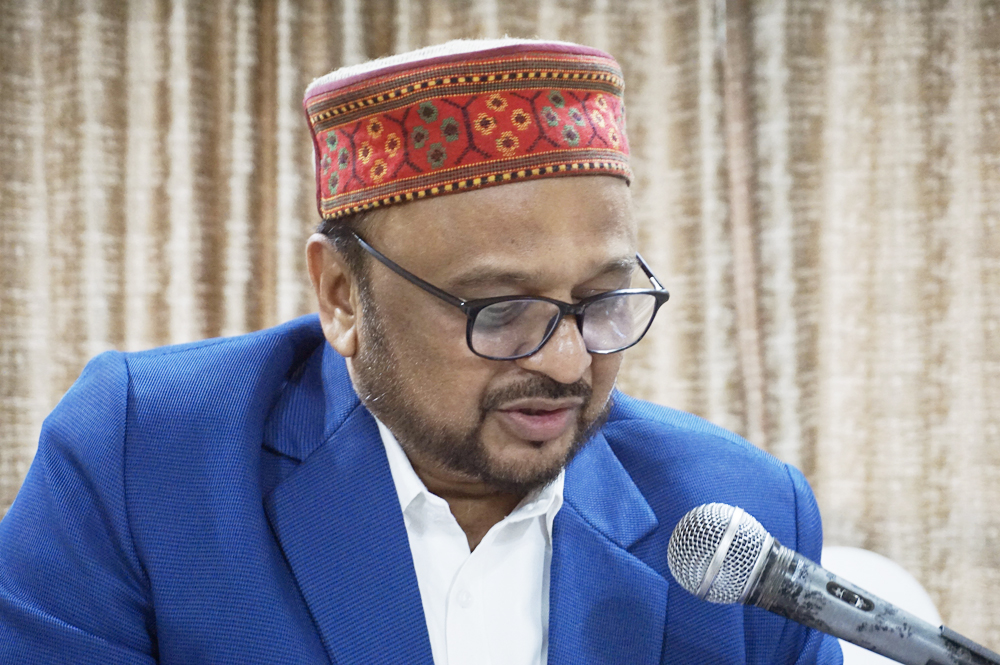
In his presidential address, Mubeen Khan, vice-president of the MCCI, said that economic condition of Muslims was worse than that of the scheduled castes. He remarked that unless the minorities wanted to change their own condition and worked to achieve that goal, even Allah would not help them. Work ethic was basic to Islam. Muslims should leave their laziness. Economic uplift was most important. If Muslims wanted to reform the community, they must give time to the people of the community and work with them. There was no use blaming others. He advised Muslims to improve themselves. “We must make ourselves so strong that Allah will ask us what we want. Skills must be imparted to our youth”. There was need to see that the youth became proficient in latest technology, like chat GPT, AI, etc. Muslims needed to be job givers rather than job seekers. Referring to politics, he said that Muslims should not indulge in hate speech because this would unite the majority community. Muslim unity was extremely necessary. Muslims must interact with non-Muslims closely to earn their goodwill and to clear their prejudices, he counselled.
The success of this national seminar would not have been possible without the active participation of various faculty members of Poona College such as Dr. Zoheb Hasan, Dr. Gulnawaz Usmani, Dr. Shahid Jamal Ansari, Dr. Mukhtar Shaikh, Dr. B.R. Shaikh, Mr. Javed Akhtar, Dr. Shakir Shaikh. Professor Shakeel Ahmed thanked all of them in his vote of thanks in the valedictory session. He thanked chief guest, guest of honour, all the speakers and participants. Finally he thanked Mr. Mohammad Alam, Finance secretary of IOS, Professor Aftab Anwar, Principal of Poona College, Mr. Arman Shaikh, vice -principal of Foresight College, Mr. Rashid Anwar and Mr. Mansoor Ahmad, and office-bearers of IOS, New Delhi, for the success of this national seminar.
The seminar was well-attended by scholars and social scientists.
After a day-long deliberation, the following resolutions were adopted:
- Indian Constitution is pluralistic in nature and it is essential to work for building an India of unity in diversity.
- To adopt collective and peaceful efforts against discrimination, malpractices, violence etc. against minorities.
- To work towards discouraging bigotry and fanaticism and encouraging sympathy, tolerance, peaceful coexistence and compassion.
- To work for strengthening the universal brotherhood, as envisaged in the Preamble of the Constitution.
- To set and define the roadmap for economic empowerment of socially marginalized individuals and groups.
- To take lead in the formation of peace committees and participate in its working actively for the welfare of all social groups.
- To find out all democratic and governmental mechanisms and policies for the welfare of minorities and avoid activities which are detrimental to the socio-cultural fabric of India.
.jpg)
A view of audience.
Go Back